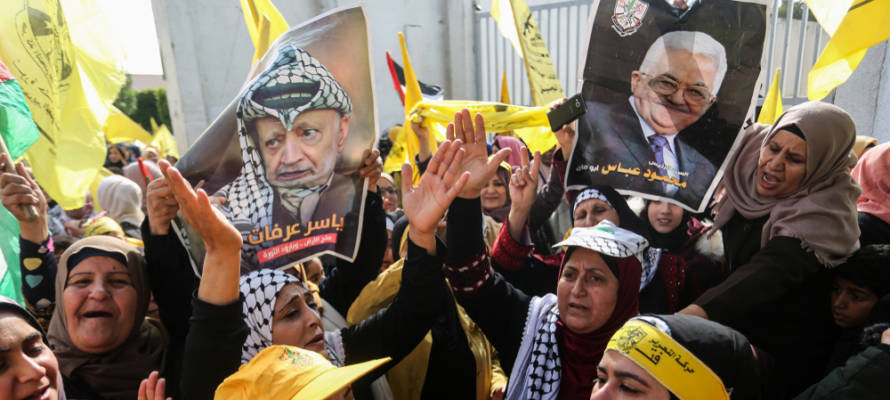The Palestinian Authority in Ramallah has been boycotting 1.8 million Arabs in Gaza, but the media refuses to report on it.
By Yakir Benzion, United With Israel
Western media is falling over itself to promote the fact that the Palestinian Authority (PA) might finally hold elections for the first time in over 15 years.
Meanwhile, nobody has bothered to report that that Mahmoud Abbas’ PA regime has for years maintained crippling sanctions on the Gaza Strip and its 1.8 million Arab residents, a leading media watching group reported Wednesday.
Instead of reporting that the Palestinian government’s own sanctions are contributing to the precarious conditions in Gaza, which is under the total control of the Palestinian terror group Hamas, news outlets report that Gaza’s problems stem from the joint “Israeli-Egyptian blockade,” HonestReporting said.
The poverty-stricken and infrastructure-poor Gaza Strip has been controlled since 2007 by Abbas’s arch-enemy, the Iran-backed Hamas terror group, which seized power from the Fatah organization headed by Abbas in a bloody military coup.
To make sure Hamas has a hard time running Gaza, Abbas ordered cuts in welfare payments, slashed funding for electricity and took other punitive measures, but those crippling steps for Gazans have gone largely unreported by the vast majority of international media outlets.
Truth Hurts
However, Mideast expert Khaled Abu Toameh of the Jerusalem Post follows the corruption of the Palestinian government in Ramallah closely and tweeted earlier this week about what is really going on.
“Palestinian official: President Mahmoud Abbas is considering lifting the economic sanctions he imposed on the Gaza Strip to facilitate the general elections,” Abu Toameh tweeted.
Sanctions? What sanctions? Abbas has basically been given a free pass, even as nearly two million Gazans have been paying the price for the political feud between Abbas’s ruling faction and Hamas, which has not hidden its desire to oust him and take over the territory he controls in Judea and Samaria.
Over the years, Abbas has ratcheted up economic pressure on Hamas by making life more difficult for Gazans. One of his steps was banning Palestinian banks from transferring money to residents in Gaza. Human rights groups have also documented arrests related to such “illegal” activity.
Another battleground is the civil service in Gaza. After Hamas took over, Abbas continued to pay the salaries of tens of thousands of his Gaza-based employees, even though most were thrown out of their jobs and replaced by Hamas loyalists who are on the Hamas payroll.
The Fatah civil servants in Gaza became a problem when the Trump administration cut funding to the PA after Abbas refused to stop paying tens of millions of dollars in stipends to terrorists in his pay-for-slay program. With the PA running short of money, those salaries were suddenly cut in 2018.
With unemployment over 50% in Gaza and poverty rampant, the White House in March 2018 organized a conference to discuss possible solutions for alleviating the situation in Gaza.
But Abbas shunned the initiative and rebuffed a request by Nickolay Mladenov, then-UN Special Coordinator for the Middle East Peace Process, for a tete-a-tete, Honest Reporting noted.
Blaming Israel
Later in 2018 there were demonstrations in several Palestinian cities demanding an end to the PA’s Gaza sanctions. While the PA’s crackdown on protesters was widely condemned in Palestinian and Arab media, international news organizations gave the story a pass, especially regarding the violence employed by Palestinian forces.
Despite Abbas’ tactic to foment unrest in Gaza through economic strangulation, recent news coverage about his call for Palestinian elections has again gained him the complimentary “moderate” title in the international media, lending credence to his attempts to portray himself as a potential peace partner.
“But the full picture, as is generally the case, is much more complex. That the PA President has inflicted harm upon his own people runs counter to the accepted, albeit deeply flawed, narrative,” Honest Reporting noted. “By uniquely blaming Israel for the plight of Gazans, a significant story has been buried about the man who still seeks to lead the Palestinian people.”
